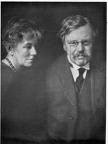
Some are a little dismissive of the Divine Mercy devotions, perhaps partly because they see them as untraditional and late in time or new-fangled.
In fact, it is entirely fitting that
Quasimodo Sunday should have been chosen by the Supreme Pontiff for the Feast of Divine Mercy since it is the day when St Thomas the Doubter was reconciled from his doubts, as the Gospel tells us, and, after placing his hands in the wounds of Christ, made the act of faith saying, "My Lord and my God!".
It is also the day when the introit of the traditional Roman rite repeats the words of St Peter:
"laying away all malice and all guile and dissimulations and envies and all detractions, just as the new born infants desire the rational milk without guile..."
This is a highly appropriate verse for those seeking out the mercy of God. Moreover, this day was the day when the neophytes, having been baptised at the Easter Vigil, and having worn their white baptismal robes (nowadays still used for infant baptism) for the full week, set aside their white robes having been filled with all the grace and blessing of baptism.
This, then, is surely the very day when the accumulation of God's grace and mercy is at its height and the Faithful ought, therefore, to seek access thereto all the more fully.
The Sacred Penitentiary, the Church's highest court (yes, really; it is higher than the Apostolic Signature or the Sacred Rota), in its Decree of 29 June 2002, set out the conditions for a
Plenary Indulgence granted by the Supreme Pontiff. The Decree states:
"And so the Supreme Pontiff, motivated by an ardent desire to foster in Christians this devotion to Divine Mercy as much as possible in the hope of offering great spiritual fruit to the faithful, in the Audience granted on 13 June 2002, to those Responsible for the Apostolic Penitentiary, granted the following Indulgences:
- a plenary indulgence, granted under the usual conditions (sacramental confession, Eucharistic communion and prayer for the intentions of Supreme Pontiff) to the faithful who, on the Second Sunday of Easter or Divine Mercy Sunday, in any church or chapel, in a spirit that is completely detached from the affection for a sin, even a venial sin, take part in the prayers and devotions held in honour of Divine Mercy, or who, in the presence of the Blessed Sacrament exposed or reserved in the tabernacle, recite the Our Father and the Creed, adding a devout prayer to the merciful Lord Jesus (e.g. Merciful Jesus, I trust in you!");
- a partial indulgence, granted to the faithful who, at least with a contrite heart, pray to the merciful Lord Jesus a legitimately approved invocation."
Confession and Communion may, according to the Penitentiary's guidance, be on any day 20 days either side of Low Sunday.
Below are reproduced the Novena to the Divine Mercy which began on Good Friday.
Even if you missed it, join in anyway. This is the original and real Novena and not the censored version put forward by some temerarious people who think that they have the right to alter the very words of Christ Himself to Sr Faustina because it was not "trendy" and "ecumenical" enough.
9 Day Novena to the Divine Mercy at Easter
Encourage souls to place great trust in My fathomless mercy. Let the weak, sinful soul have no fear to approach Me, for even if it had more sins than there are grains of sand in the world, all would be drowned in the immeasurable depths of My mercy.
(Message to Saint Faustina from our Lord)I desire that during these nine days you bring souls to the fount of My mercy, that they may draw there from strength and refreshment and whatever graces they need in the hardships of life and, especially, at the hour of death
On each day you will bring to My Heart a different group of souls, and you will immerse them in this ocean of My mercy, and I will bring all these souls into the house of My Father. You will do this in this life and in the next. I will deny nothing to any soul whom you will bring to the fount of My mercy. On each day you will beg My Father, on the strength of My bitter Passion, for graces for these souls.
I answered, "Jesus, I do not know how to make this novena or which souls to bring first into Your Most Compassionate Heart. "Jesus replied that He would tell me which souls to bring each day into His Heart.
Day OneToday, bring to Me all mankind, especially
all sinners, and immerse them in the ocean of My mercy. In this way you will console Me in the bitter grief into which the loss of souls plunges Me.
Most Merciful Jesus, whose very nature it is to have compassion on us and to forgive us, do not look upon our sins, but upon the trust which we place in Your infinite goodness. Receive us all into the abode of Your Most Compassionate Heart, and never let us escape from It. We beg this of You by Your love which unites You to the Father and the Holy Spirit.
O omnipotence of Divine Mercy, Salvation of sinful man, You are a sea of mercy and compassion;You aid him who entreats You with humility.
Eternal Father, turn Your merciful gaze upon all mankind and especially upon poor sinners, all enfolded in the Most Compassionate Heart of Jesus. For the sake of His sorrowful Passion, show us Your mercy, that we may praise the omnipotence of Your mercy forever and ever. Amen.
Now say the Divine Mercy Chaplet.
Day TwoToday bring to Me the souls of
priests and religious, and immerse them in My unfathomable mercy. It was they who gave Me the strength to endure My bitter Passion.Through them, as through channels, My mercy flows out upon mankind.
Most Merciful Jesus, from whom comes all that is good, increase Your grace in us, that we may perform worthy works of mercy, and that all who see us may glorify the Father of Mercy who is in heaven.
The fountain of God's love Dwells in pure hearts, Bathed in the Sea of Mercy, Radiant as stars, bright as the dawn.
Eternal Father, turn Your merciful gaze upon the company [of chosen ones in Your vineyard upon the souls of priests and religious; and endow them with the strength of Your blessing. For the love of the Heart of Your Son, in which they are enfolded, impart to them Your power and light, that they may be able to guide others in the way of salvation, and with one voice sing praise to Your boundless mercy for ages without end. Amen.
Now say the Divine Mercy Chaplet.
Day ThreeToday bring to Me
all devout and faithful souls, and immerse them in the ocean of My mercy. These souls brought Me consolation on the Way of the Cross. They were that drop of consolation in the midst of an ocean of bitterness.
Most Merciful Jesus, from the treasury of Your mercy,You impart Your graces in great abundance to each and all. Receive us into the abode of Your Most Compassionate Heart and never let us escape from It. We beg this of You by that most wondrous love for the heavenly Father with which Your Heart burns so fiercely.
The miracles of mercy are impenetrable.Neither the sinner nor just one will fathom them. When You cast upon us an eye of pity, You draw us all closer to Your love.
Eternal Father, turn Your merciful gaze upon faithful souls, as upon the inheritance of Your Son. For the sake of His sorrowful Passion, grant them Your blessing and surround them with Your constant protection. Thus may they never fail in love or lose the treasure of the holy faith, but rather, with all the hosts of Angels and Saints, may they glorify Your boundless mercy for endless ages Amen.
Now say the Divine Mercy Chaplet.
Day FourToday bring to Me the
pagans and those who do not yet know me. I was thinking also of them during My bitter Passion, and their future zeal comforted My Heart. Immerse them in the ocean of My mercy.
Most Compassionate Jesus, You are the Light of the whole world. Receive into the abode of Your Most Compassionate Heart the souls of pagans who as yet do not know You. Let the rays of Your grace enlighten them that they, too, together with us, may extol Your wonderful mercy; and do not let them escape from the abode which is Your Most Compassionate Heart.
May the light of Your love Enlighten the souls in darkness; Grant that these souls will know You And, together with us, praise Your mercy.
Eternal Father, turn Your merciful gaze upon the souls of pagans and of those who as yet do not know You, but who are enclosed in the Most Compassionate Heart of Jesus. Draw them to the light of the Gospel. These souls do not know what great happiness it is to love You. Grant that they, too, may extol the generosity of Your mercy for endless ages. Amen.
Now say the Divine Mercy Chaplet.
Day FiveToday bring to Me the souls of
heretics and schismatics, and immerse them in the ocean of My mercy. During My bitter Passion they tore at My Body and Heart; that is, My Church. As they return to unity with the Church, My wounds heal, and in this way they alleviate My Passion.
Most Merciful Jesus, Goodness Itself, You do not refuse light to those who seek it of You. Receive into the abode of Your Most Compassionate Heart the souls of heretics and schismatics. Draw them by Your light into the unity of the Church, and do not let them escape from the abode of Your Most Compassionate Heart; but bring it about that they, too, come to adore the generosity of Your mercy.
Even for those who have torn the garment of Your unity, A fount of mercy flows from Your Heart. The omnipotence of Your mercy, 0 God, Can lead these souls also out of error.
Eternal Father, turn Your merciful gaze upon the souls of heretics and schismatics, who have squandered Your blessings and misused Your graces by obstinately persisting in their errors. Do not look upon their errors, but upon the love of Your own Son and upon His bitter Passion, which He underwent for their sake, since they, too, are enclosed in the Most Compassionate Heart of Jesus. Bring it about that they also may glorify Your great mercy for endless ages. Amen.
Now say the Divine Mercy Chaplet.
Day SixToday bring to Me
the meek and humble souls and the souls of little children, and immerse them in My mercy. These souls most closely resemble My Heart. They strengthened Me during My bitter agony. I saw them as earthly Angels, who would keep vigil at My altars. I pour out upon them whole torrents of grace. Only the humble soul is able to receive My grace. I favor humble souls with My confidence.
Most Merciful Jesus, You yourself have said, "Learn from Me for I am meek and humble of heart." Receive into the abode of Your Most Compassionate Heart all meek and humble souls and the souls of little children. These souls send all heaven into ecstasy, and they are the heavenly Father's favorites. They are a sweet-smelling bouquet before the throne of God; God himself takes delight in their fragrance. These souls have a permanent abode in Your Most Compassionate Heart, 0 Jesus, and they unceasingly sing out a hymn of love and mercy
A truly gentle and humble soul Already here on earth the air of paradise breathes, And in the fragrance of her humble heart The Creator Himself delights.
Eternal Father, turn Your merciful gaze upon meek and humble souls, and upon the souls of little children, who are enfolded in the abode which is the Most Compassionate Heart of Jesus. These souls bear the closest resemblance to Your Son. Their fragrance rises from the earth and reaches Your very throne. Father of mercy and of all goodness, I beg You by the love You bear these souls and by the delight You take in them:bless the whole world, that all souls together may sing out the praises of Your mercy for endless ages. Amen.
Now say the Divine Mercy Chaplet.
Day SevenToday bring to Me
the souls who especially venerate and glorify My mercy, and immerse them in My mercy. These souls sorrowed most over My Passion and entered most deeply into My Spirit. They are living images of My Compassionate Heart. These souls will shine with a special brightness in the next life. Not one of them will go into the fire of hell. I shall particularly defend each one of them at the hour of death.
Most Merciful Jesus, whose Heart is Love Itself, receive into the abode of Your Most Compassionate Heart the souls of those who particularly extol and venerate the greatness of Your mercy.These souls are mighty with the very power of God Himself. In the midst of all afflictions and adversities they go forward, confident of Your mercy. These souls are united to Jesus and carry all mankind on their shoulders. These souls will not be judged severely, but Your mercy will embrace them as they depart from this life. A soul who praises the goodness of her Lord She is always close to the living fountain And draws graces from Mercy Divine.
Eternal Father, turn Your merciful gaze upon the souls who glorify and venerate Your greatest attribute, that of Your fathomless mercy, and who are enclosed in the Most Compassionate Heart of Jesus. These souls are a living Gospel; their hands are full of deeds of mercy, and their spirit, overflowing with joy, sings a canticle of mercy to You, 0 Most High! I beg You 0 God: Show them Your mercy according to the hope and trust they have placed in You. Let there be accomplished in them the promise of Jesus, who said to them, I Myself will defend as My own glory, during their lifetime, and especially at the hour of their death, those souls who will venerate My fathomless mercy. Amen
Now say the Divine Mercy Chaplet.
Day Eight
Today bring to Me the
souls who are in the prison of Purgatory, and immerse them in the abyss of My mercy. Let the torrents of My Blood cool down their scorching flames. All these souls are greatly loved by Me. They are making retribution to My justice. It is in your power to bring them relief. Draw all the indulgences from the treasury of My Church and offer them on their behalf. Oh, if you only knew the torments they suffer, you would continually offer for them the alms of the spirit and pay off their debt to My justice.
Most Merciful Jesus, You Yourself have said that You desire mercy; so I bring into the abode of Your Most Compassionate Heart the souls in Purgatory, souls who are very dear to You, and yet, who must make retribution to Your justice. May the streams of Blood and Water which gushed forth from Your Heart put out the flames of the purifying fire, that in that place, too, the power of Your mercy may be praised.
From the terrible heat of the cleansing fire Rises a plaint to Your mercy, And they receive comfort, refreshment, relief In the stream of mingled Blood and Water.
Eternal Father, turn Your merciful gaze upon the souls suffering in Purgatory, who are enfolded in the Most Compassionate Heart of Jesus. I beg You, by the sorrowful Passion of Jesus Your Son, and by all the bitterness with which His most sacred Soul was flooded, manifest Your mercy to the souls who are under Your just scrutiny. Look upon them in no other way than through the Wounds of Jesus, Your dearly beloved Son; for we firmly believe that there is no limit to Your goodness and compassion. Amen
Now say the Divine Mercy Chaplet.
Day NineToday bring to Me
souls who have become lukewarm, and immerse them in the abyss of My mercy. These souls wound My Heart most painfully. My soul suffered the most dreadful loathing in the Garden of Olives because of lukewarm souls.They were the reason I cried out: "Father, take this cup away from Me, if it be Your will." For them, the last hope of salvation is to flee to My mercy.
Most compassionate Jesus, You are Compassion Itself. I bring lukewarm souls into the abode of Your Most Compassionate Heart. In this fire of Your pure love let these tepid souls, who, like corpses, filled You with such deep loathing, be once again set aflame. 0 Most Compassionate Jesus, exercise the omnipotence of Your mercy and draw them into the very ardour of Your love; and bestow upon them the gift of holy love, for nothing is beyond Your power.
Fire and ice cannot be joined; Either the fire dies, or the ice melts. But by Your mercy, 0 God, You can make up for all that is lacking.
Eternal Father, turn Your merciful gaze upon lukewarm souls, who are nonetheless enfolded in the Most Compassionate Heart of Jesus. Father of Mercy, I beg You by the bitter Passion of Your Son and by His three-hour agony on the Cross: Let them, too, glorify the abyss of Your mercy....Amen.
Now say the Divine Mercy Chaplet.
O Lord, in Your Divine Mercy, save us and save sinners!
+++
 St John before the Latin Gate,
St John before the Latin Gate, Solemn High Mass
Solemn High Mass




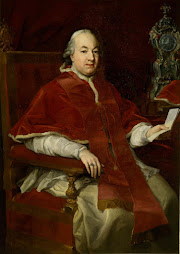

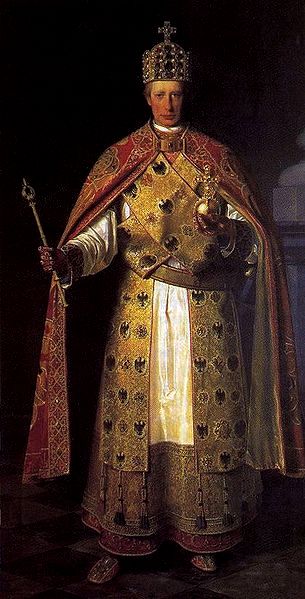




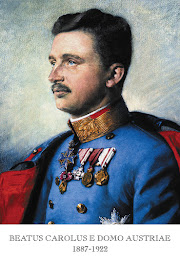

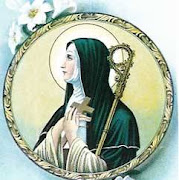


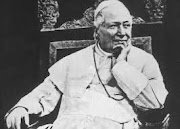
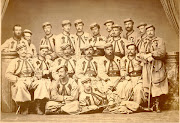
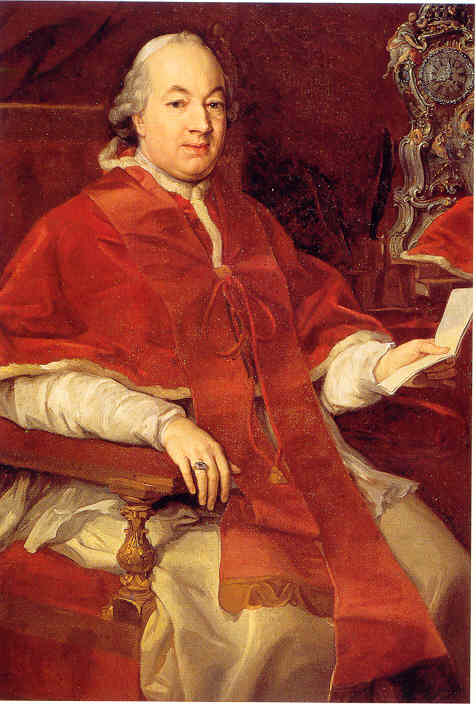
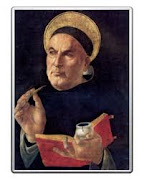



_-002.jpg/220px-Circle_of_Anton_Raphael_Mengs,_Henry_Benedict_Maria_Clement_Stuart,_Cardinal_York_(ca_1750)_-002.jpg)
